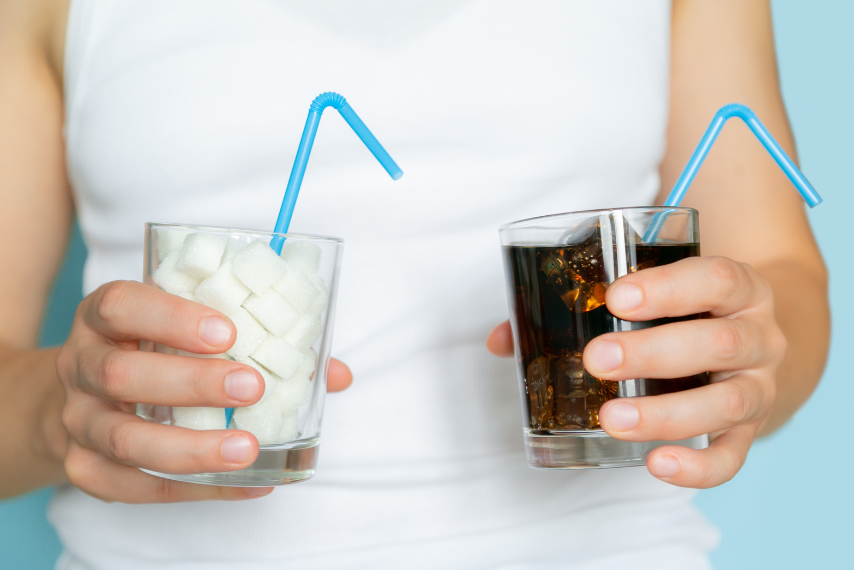
Can I Drink Diet Soda on my Weight Loss Journey?
Research suggests that diet soda may actually hinder your scale goals and harm your health.
Twigs From the Nest: Our holistic nutritionist answers client’s most common questions.
Can drinking one Diet Coke a day be bad for you if you’re trying to lose weight? What about artificial sweeteners? Does diet soda cause sugar cravings? We crack the can on the latest research surrounding diet soda and weight loss.
Diet soda was first introduced in the 1950s for people with diabetes. Though it was later marketed to people trying to control their weight or reduce their sugar intake. Today, almost every popular sugar-sweetened beverage on the market has a “light” or a “diet” version — Diet Coke, Coke Zero, Pepsi Max, Sprite Zero, etc. Instead of sugar, artificial sweeteners such as aspartame, cyclamates, saccharin or sucralose are used to sweeten these fizzy drinks. The health effects of these sweeteners remain fairly controversial.
Sure, diet drinks are advertised as a healthier option to their full-sugar counterparts, but are they really helping with our weight loss journeys? Research suggests that diet sodas may actually hinder your scale goals and harm your health.
Here’s what we know:
- Diet soda is essentially a mixture of carbonated water, artificial or natural sweetener, colors, flavors and other additives.
- Diet soda intake has been associated with an increased risk of developing chronic diseases, including metabolic syndrome, a cluster of symptoms that raises your risk of heart disease and diabetes, along with contributing to belly fat and high blood sugar.
- A study involving 749 adults found that the waist circumference gain of people who consumed diet soda daily was nearly four times greater than non-consumers over a 10-year period.
- Sweet-tasting foods, even when they don’t contain calories like Diet Coke, can stimulate the dopamine pathways in the brain associated with pleasure and reward. Some people may crave more sweet foods after drinking diet soda because the brain is primed for sweetness but doesn’t get the expected energy (calories).
- Artificially sweetened drinks may also disturb gut bacteria balance, and alter blood sugar regulation.
- The carbonation in Diet Coke can cause bloating or discomfort in some people, but this usually doesn’t have a direct impact on fat loss.
- There’s some evidence that regular consumption of artificially sweetened beverages may alter the body’s response to sweetness. This may potentially impact metabolism and blood sugar regulation. These changes could make it harder for some people to lose weight, although more research is needed to understand the full impact.
The Verdict
Years of research suggest that diet drinks aren’t the waistline-friendly choice that they’re made out to be. Drinking Diet Coke in moderation likely won’t sabotage your weight loss, especially if it helps you avoid higher-calorie alternatives. However, it’s essential to monitor how it affects your overall appetite, food choices, and cravings. Staying hydrated with water and focusing on whole, nutritious foods will be key in supporting your weight loss goals.
It’s best to reduce your intake of artificially sweetened drinks as much as possible. If you’re used to having several diet drinks per day, slowly start replacing them with sparkling water.
For help finding your personalized nutrition plan, schedule a complimentary consultation with a holistic nutritionist. See if Healthy Nest is right for you!
Sources: Healthline, National Library of Medicine
